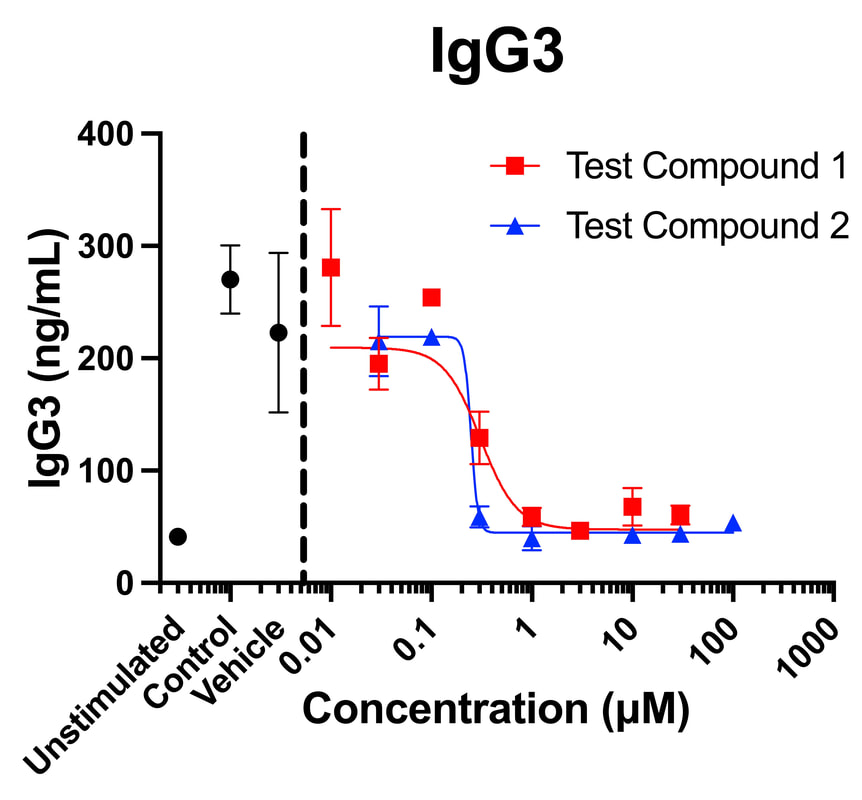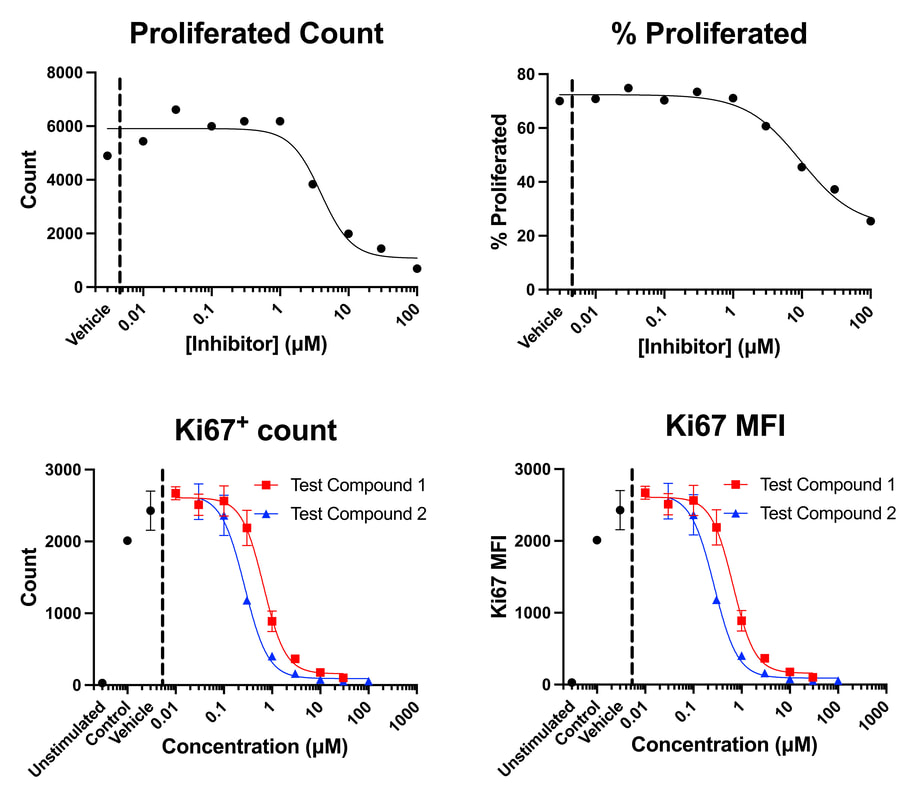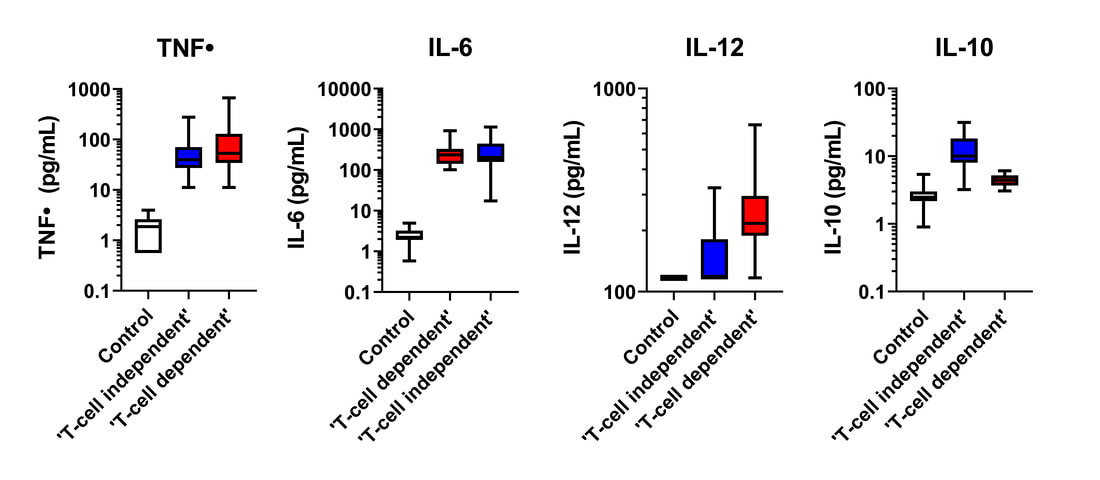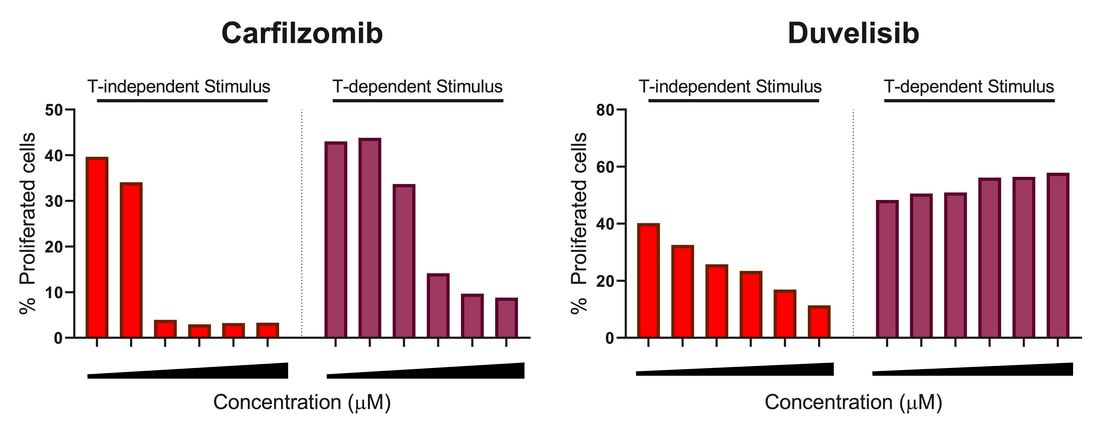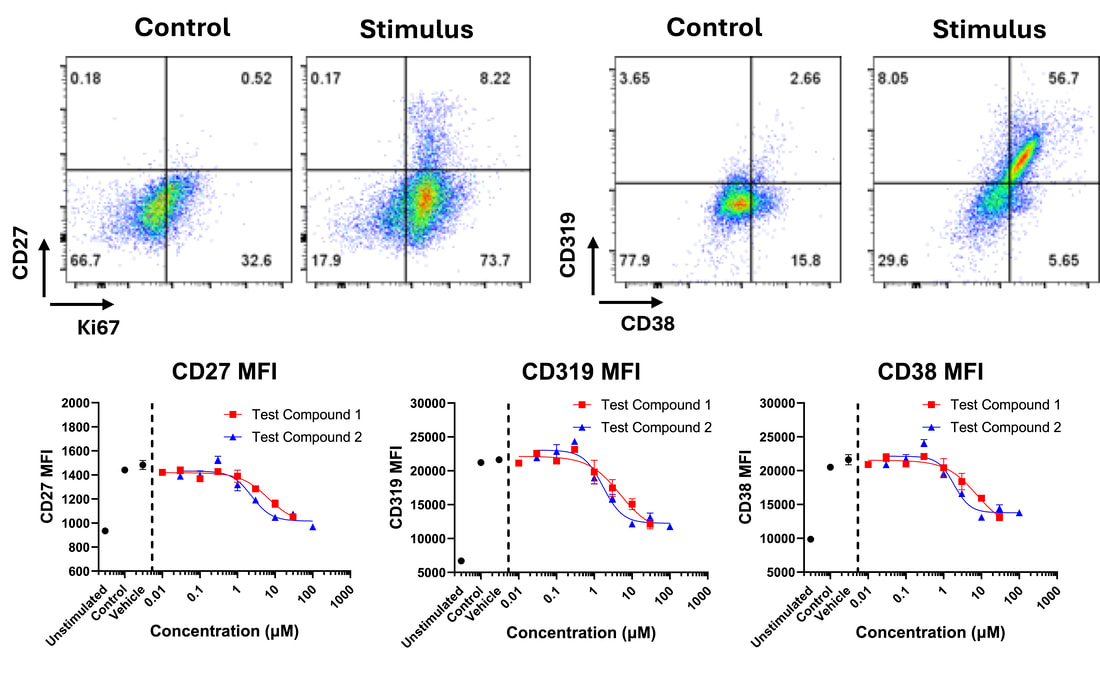Home > Immunology Assays > B Cells
Assays for measuring B cell activation, immunoglobulin (Ig) production, proliferation and signalling B lymphocytes (B cells) are integral to the human immune system, playing key roles in the generation of antibodies and the performance of other pivotal functions such as antigen presentation and cytokine production, to help orchestrate immune modulation. These actions highlight the therapeutic potential of targeting B cells in autoimmune and inflammatory diseases where dysfunction may contribute to or even initiate disease through the production of pathogenic antibodies. In infectious disease and, more recently, in immuno-oncology, boosting B cell responses may be of clinical benefit. B cells are essential precursors to antibody-producing plasma cells – no B cells, no antibodies. B cells are produced in bone marrow, circulate in peripheral blood and reside in secondary lymphoid tissues such as spleen, tonsil, lymph nodes, Peyer’s patches, and MALT (mucosa-associated lymphoid tissue). B cell functions are far broader than just antibody generation; they also possess exquisite efficiency to process and present cognate antigen influencing fundamental aspects of T cell performance. A relatively recent addition to the B cell subset family, ‘regulatory B cells’ (Bregs) temper excessive inflammatory responses through the production of immunomodulatory cytokines, helping to restore immune balance.
Given the multifarious and central physiological roles, any disruption in B cell function can lead to a broad range of diseases. At one end of the spectrum, B cell insufficiency leads to severe immunodeficiency, leaving the body vulnerable to infections and cancer. At the other, uncontrolled monoclonal B cell proliferation results in malignancy. The production of antibody to ‘self’, and/or disturbance in Breg behaviour, underlies numerous examples of autoimmunity. Inappropriate immunoglobulin excess defines hypergammaglobulinaemia in its various guises. Anomalies in IgE production and its specific targeting may result in increasingly common and potentially lethal groups of immediate-Type (Type I) hypersensitivity and allergies. Professor John Gordon, co-founder of Celentyx and VP of Scientific Affairs, is recognised as a global authority on the role of both normal and pathological B cells. His work has been instrumental in advancing Celentyx’s breadth of cutting-edge B cell assays, enabling the precise impact of drugs upon B cell function to be identified. Celentyx offers a comprehensive suite of state-of-the-art assays to investigate B cell, plasmablast and plasma cell function. These range from proliferation and differentiation to activation markers, immunoglobulin production, and intracellular signalling pathways. The assays have proven valuable to inform drug impact upon B cell behaviour, facilitating the development of next-generation therapies aimed at harnessing or modulating B cell activity in a range of diseases. |
Further Immunology Assays
B Cells Haemolysis Testing Human Microglia Macrophages/Monocytes Neutrophils/Granulocytes Phagocytosis Assays Regulatory T cells Spheroid Killing Assays Suppression Assays T Cell Activation Assays T Cell Exhaustion Assays Tumour infiltrating lymphocyte (TIL) and dissociated tumour cell assays Tumour Cell Killing Assays |
|
Immunoglobulin Production |
Proliferation |
|
Cytokine Release |
Activation/Differentiation |



